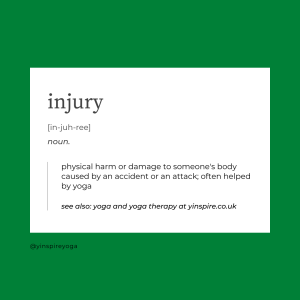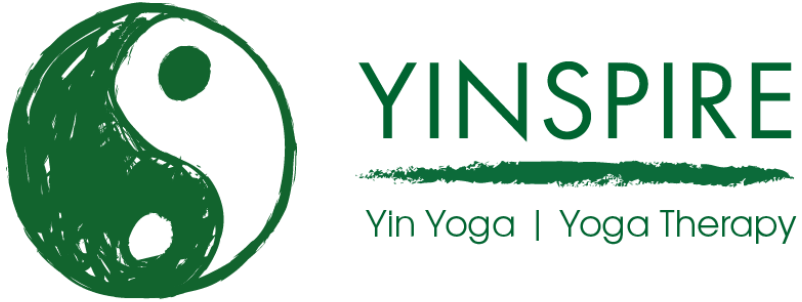 A common question that a Yoga Teacher gets asked is “I’ve injured [something] can I still practice Yoga?” or its variation “I’ve injured [something] will Yoga help?”
A common question that a Yoga Teacher gets asked is “I’ve injured [something] can I still practice Yoga?” or its variation “I’ve injured [something] will Yoga help?”
The answer it turns out is “maybe”.
The two things going through my mind in these circumstances are “Would Yoga make this worse? If so, how to guard against that?” and “How may Yoga actively help?”.
Initially after an injury you may have inflammation, bruising and shock – depending on the severity and circumstances of the injury you may need to rest. There is, of course, a difference between, say, an injury from overdoing it in the garden or gym, verses being caught up in an accident – the latter brings added psychological stresses. If you attend a Yoga class regularly then your first port of call regarding Yoga is your Yoga Teacher – they can let you know if it is appropriate to come along, or whether it is best to take a break. If you practice Yoga by yourself, or from online sources, then you will need to feel your own way with caution.
My advice is always to be cautious, although in most cases a gentle Yoga class with an experienced teacher is more likely to help than hinder.
So, what about longer-term recovery from an Injury? Well, here Yoga can nearly always help, whether it’s physically bringing strength or release to an injured area and its surrounding tissues; using Yoga practices to help us tolerate pain, or helping us deal with shock and anxiety if we have been in a traumatic situation. Working with an experienced Yoga Teacher is vital here, to choose the right practices and give you the support you need.
Most of my classes are suitable for rehabilitation from injury, although it’s useful if we can speak first so I have a perspective on your situation. You can learn more about my Yoga Classes at www.yinspire.co.uk.
I can also work on one with people as a Yoga Therapist and this can be useful if you feel you need some more personalised attention – learn more on my Yoga Therapy website, www.yinspire.co.uk/yoga-therapy
Yoga is not a substitute for emergency healthcare, so if you have urgent issues, please speak to your GP, NHS 111, or other Health Professional.
